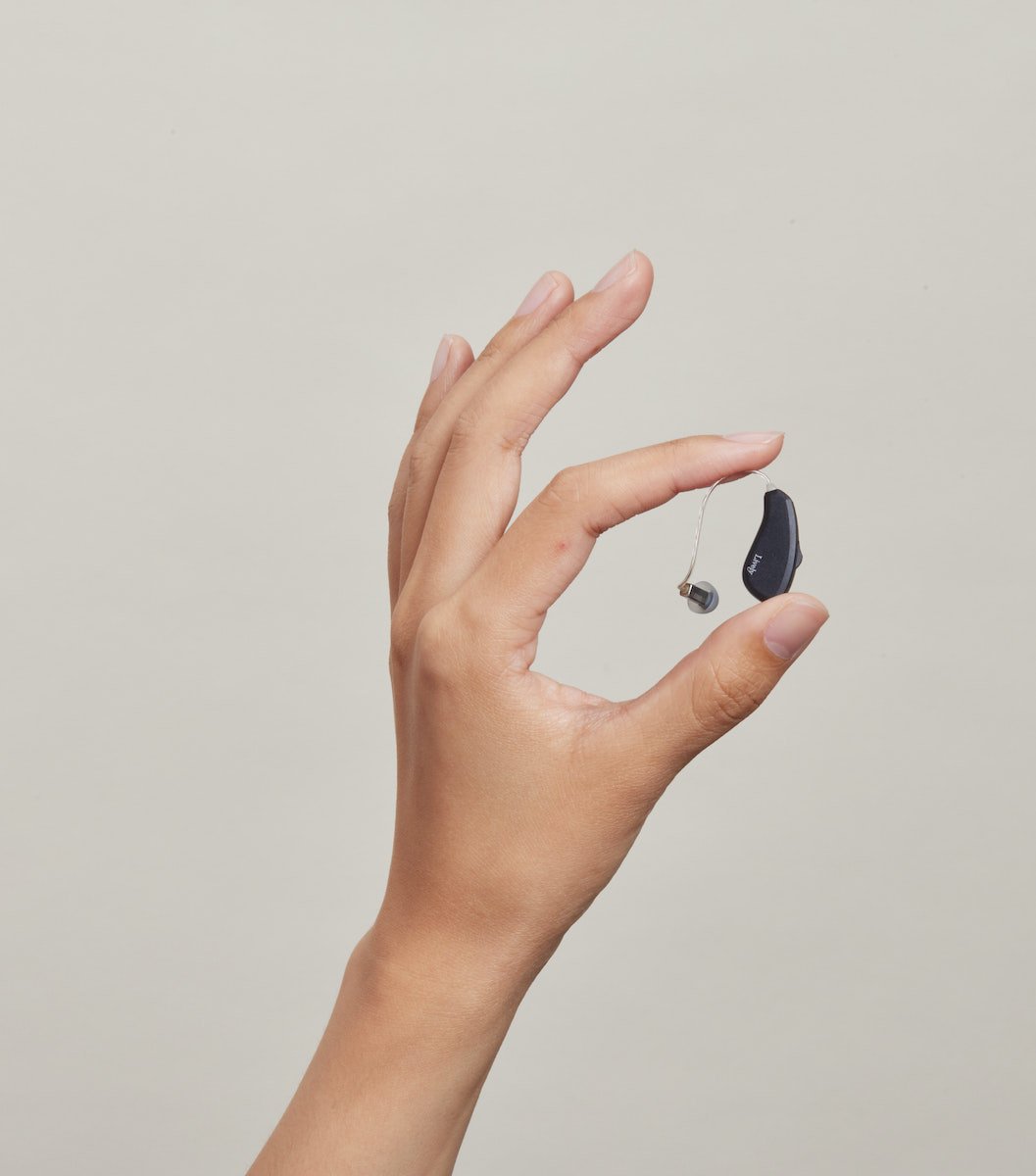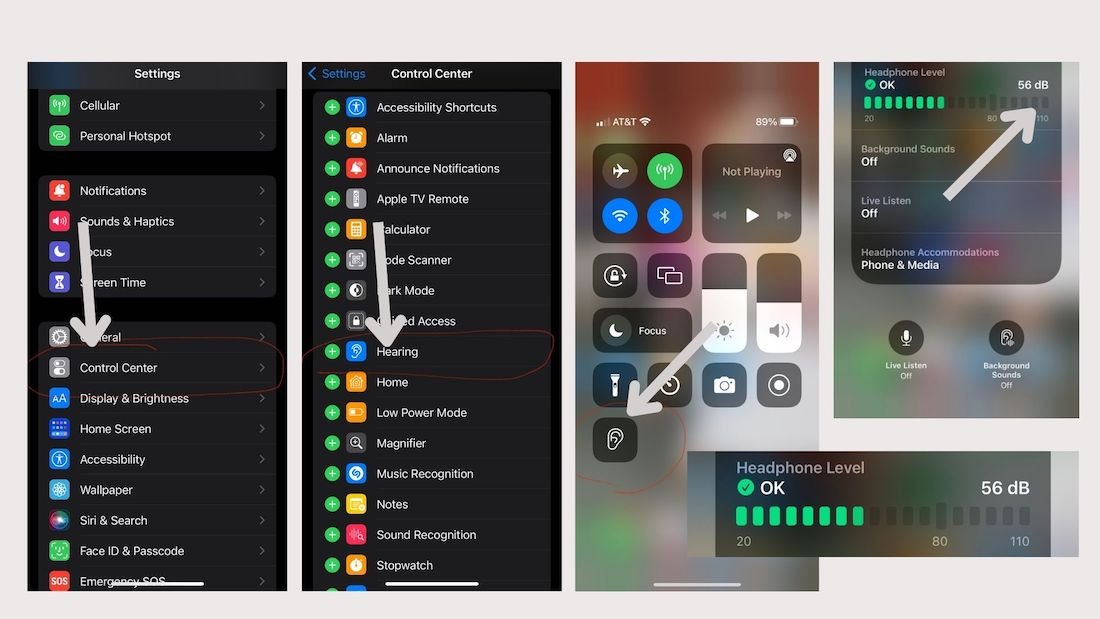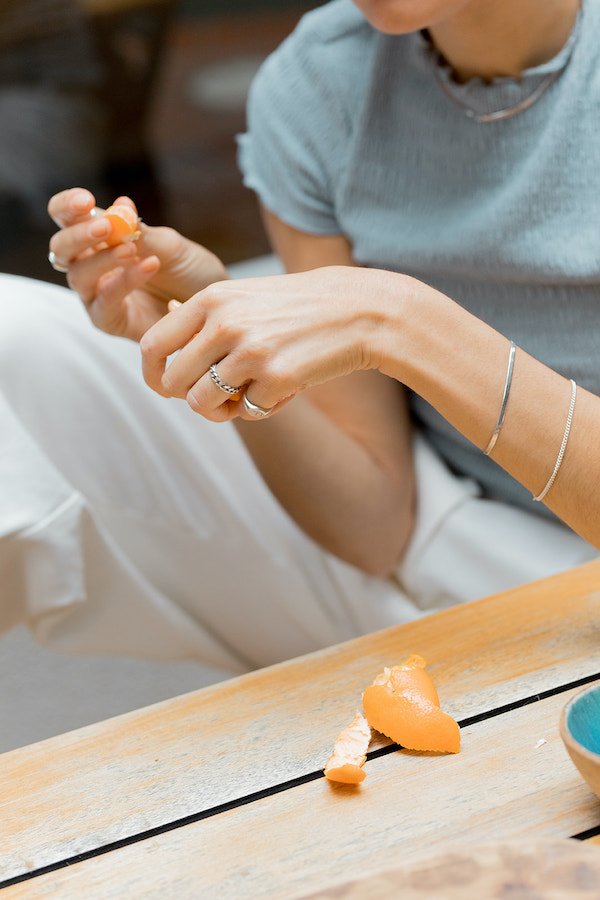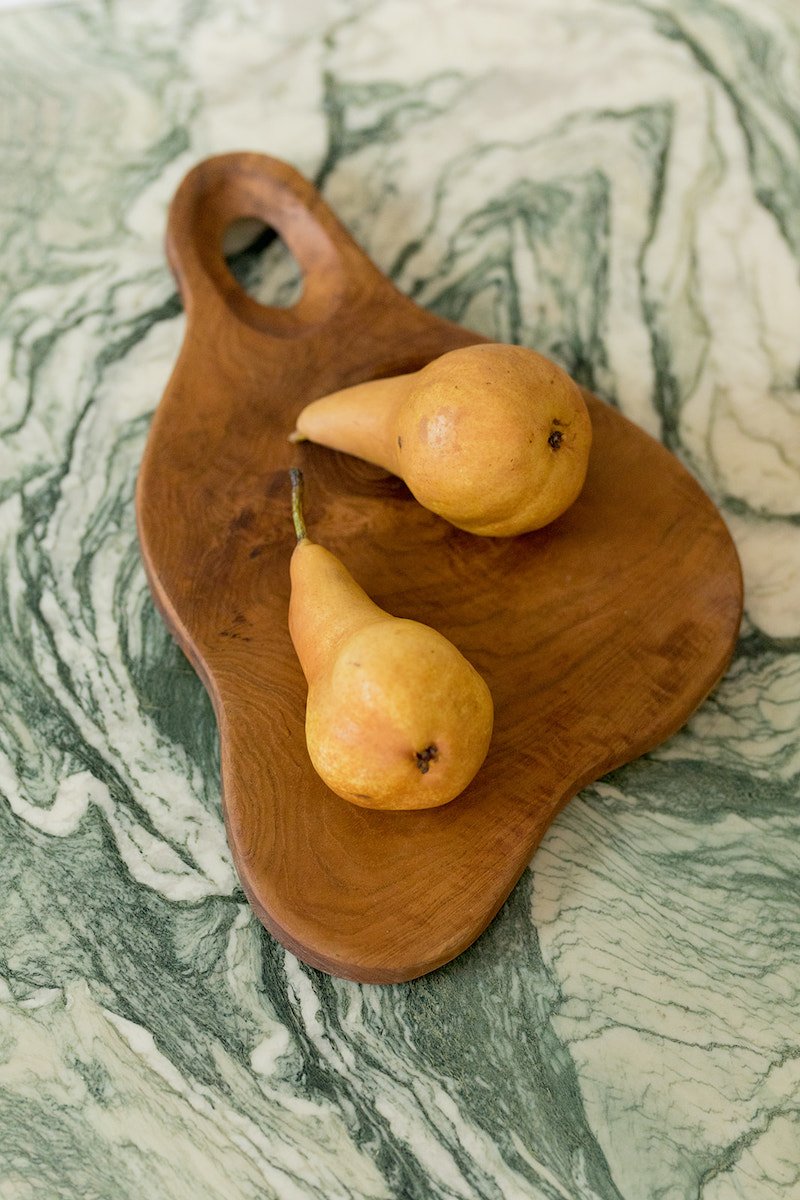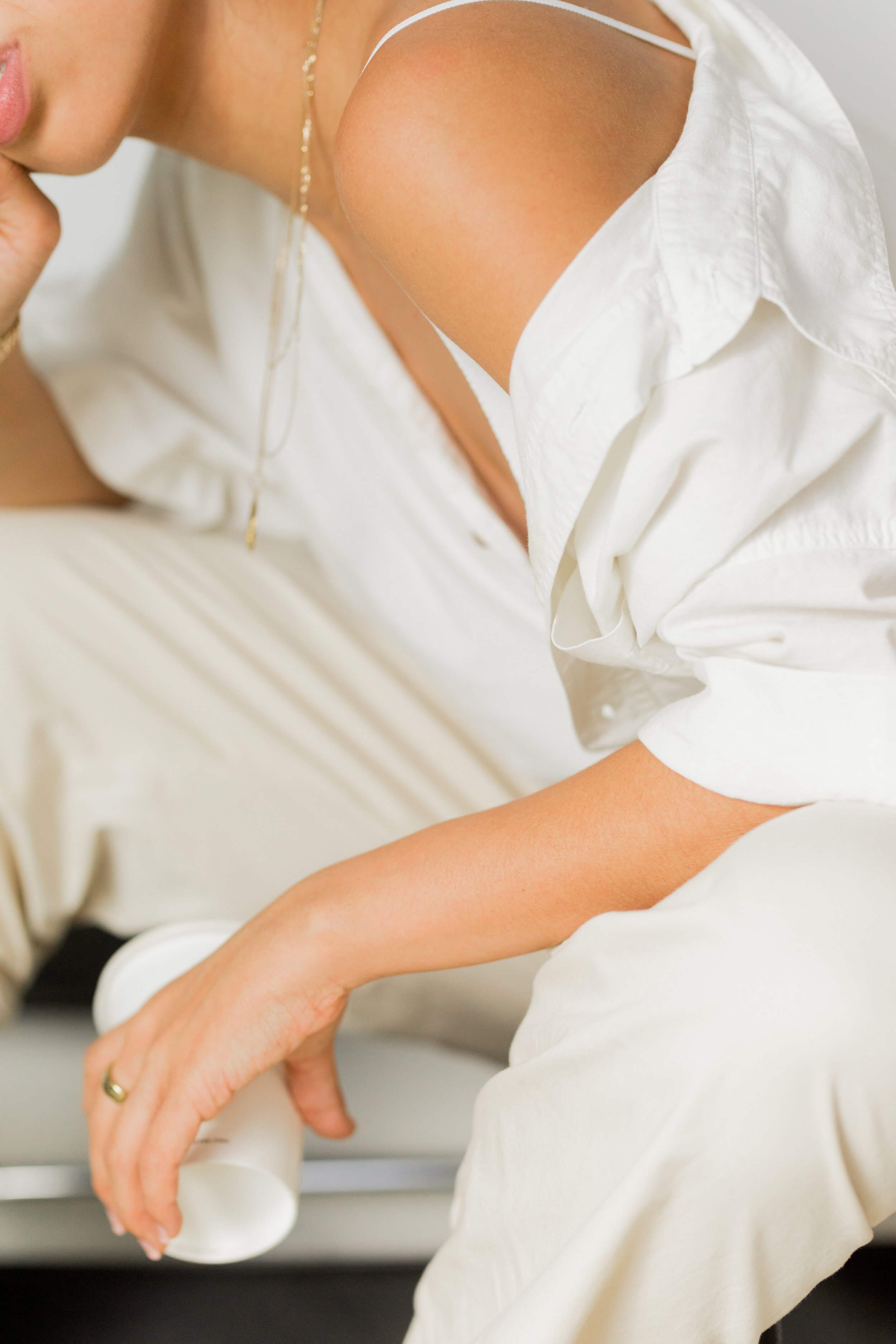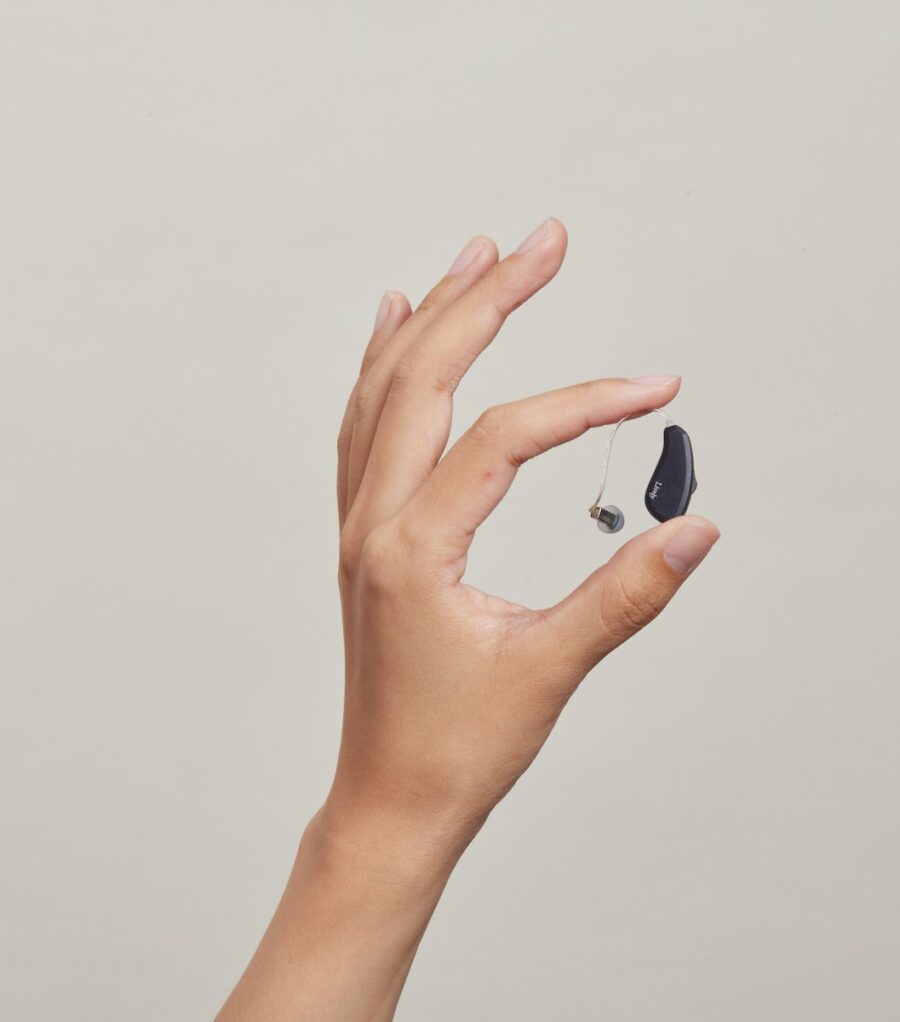
Why (And How) I’m Prioritizing My Hearing Health At Age 32
I’ve had hearing loss for as long as I can remember, and it’s always been strange to me that we don’t talk about it more.
For me, hearing loss shows up mostly in simple ways—turning the TV volume up, looking directly at someone in order to read their lips, asking the people around me to relay some detail I missed. I’ve always felt especially thankful when friends, family, and close colleagues turned to me at the end of a conversation to make sure I caught everything. Fun fact: If you speak loudly at the start of a meeting, everyone else usually follows suit. Oh, and don’t choose me as a karaoke partner because I notoriously don’t know the lyrics.
“I was missing everything, avoiding neighbors and laughing at jokes I hadn’t heard.”
Like many with hearing loss, I avoided hearing aids and learned to cope, but in 2020, everyone around me put on masks, and my ability to read lips disappeared. I was missing everything, avoiding neighbors and laughing at jokes I hadn’t heard. I had to do something.
According to the CDC, around 1 in 10 people have hearing loss, and over half are under 60. Yet only 25 percent of people who would benefit from hearing aids get them. The reasons range from the cost of hearing aids, which is falling quickly due to new legislation, stigma related to hearing loss, and lack of regular testing.
After more than 20 years of hearing loss, two years of wearing hearing aids, and countless hours of research, I’m convinced that we need to change the conversation around hearing health. Moreover, we need to start talking about hearing health more, earlier, and with less stigma.
Here are three ways I’m prioritizing my hearing health this year and how you can too.
1. Shift your mindset: Hearing health is part of your overall wellness.
For me, a new mindset on my hearing started with knowledge. I waited a decade to get my hearing tested. When I finally did, my hearing loss moved from a looming question to a more knowable part of my health picture.
Instead of thinking of my hearing on a good or bad binary, I’m shifting my mindset to hearing as wellness. Sound has a profound impact on our overall health and wellbeing. Living with hearing loss increases your mental workload in every conversation and impacts fatigue, mental acuity, relational connection, and other health outcomes. Research from the National Library of Medicine, Harvard Medical School and Johns Hopkins consistently shows that hearing health isn’t just about sound; it’s central to our overall wellness.
If you or someone you know is waiting to get tested, you can try a free online hearing test which will give results in less than 5 minutes.
2. Be proactive about protecting your hearing.
We live in an increasingly noisy world. AirPods are everywhere, and many of us keep our AirPods (or other headphones) in all the time. Podcasts, audiobooks, Spotify, YouTube, and TikTok have made our ears valuable real estate. But what exactly is this doing to our hearing health? The answer is a buzzkill.
“Millions of teenagers and young people are at risk of hearing loss due to the unsafe use of personal audio devices…” said Dr. Bente Mikkelsen, WHO Director for the Department for Noncommunicable Diseases, to the UN health agency. With the rapid rate of gaming and headphone use, the American Osteopathic Association estimates one in five teens today will experience some form of hearing loss—a rate about 30 percent higher than it was 20 years ago.
But before you throw out your AirPods and delete your life’s work on Spotify, experts have some suggestions to make AirPod listening safer. You can quickly check the decibel (dB) level of your AirPods by taking the following steps:
Go to Settings on your iPhone > Click “Control Center > Add “Hearing”> Now swipe up or down (depending on your phone) for your control center and tap the ear icon. If you are wearing your AirPods, you should see a meter that indicates how loud your headphones are in dB. Stay in the 60s or 70s for safe listening.
3. Take control of your hearing health.
In 2020, I purchased hearing aids. It took me a while to gear up for the purchase and some time to adjust to the additional sounds I heard once I did. Some noises like birds chirping were welcome additions, and other sounds, like helicopters flying above my Los Angeles neighborhood, took me a while to get used to.
After the initial adjustment period, the option to wear hearing aids during difficult listening situations (late at night with friends, important meetings, or doctor’s appointments) has been significant for me. I don’t wear my hearing aids all the time, but now I have options.
“Despite some old-fashioned notions, hearing aids aren’t just for seniors. ”
Despite some old-fashioned notions, hearing aids aren’t just for seniors. Millions of younger adults (and kids) benefit from hearing aids in the same way they do glasses. Stars like Millie Bobby Brown and Daymond John have been open about their devices, and technological breakthroughs mean that hearing aids are now Bluetooth-enabled and AI-powered.
I’m also learning to be more open about my hearing loss. I recently joined a local gym with classes in a loud open workout area and constant music. I don’t always love wearing my hearing aids at the gym during rigorous workouts, and in the past, I would have positioned myself next to the coach and tried to get through by watching the other class attendees. This time, I walked straight up to the coach and told him that I was hard of hearing and warned him that I’d probably ask him to repeat himself.
A New Era In Personal Health
The culture around our bodies and health is changing quickly. A decade ago, mental health-focused brands like Calm, glucose monitoring services like Levels, and even fitness tracking startups like Whoop were on the fringe, and now they are entering the mainstream. The more we know about our bodies, the more we can care for ourselves and live healthy lives.
Maybe our ears are the next frontier? New mindsets and information have changed how I think about hearing tests, the biology of our ears, and protection from loud environments. After years of putting off the conversation, I’m now leaning in and learning more.
In early 2022 I launched Soundly.com as a singular destination for those curious about their hearing health. Visitors can use the site to take an audiologist-backed online hearing test, search for local care providers and compare products. Whether you are working through your own hearing loss or supporting someone you love, I hope that Soundly can be a source of information and new perspective.
Blake Cadwell is the CEO of Soundly, an online marketplace that streamlines the process of searching for and comparing hearing through, shopping tools, access to professionals and online hearing tests.
RELATED READING
Featured image is from Soundly
